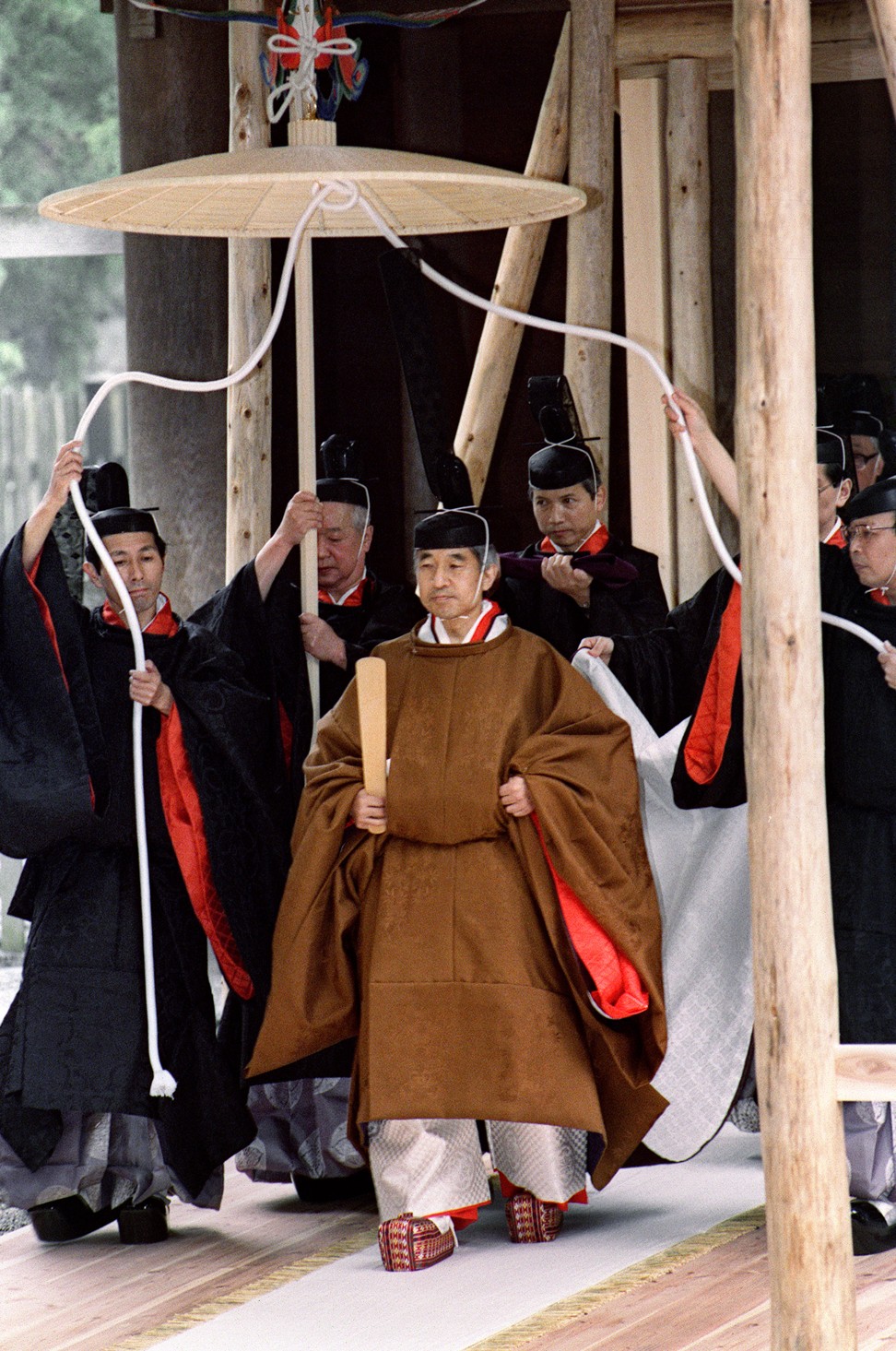
Imperial ceremony in Japan angers taxpayers, but it’s got nothing on the pomp of ancient Chinese rituals
The Japanese government is being sued by plaintiffs who argue that the enthronement ceremony planned for the new emperor is ‘highly religious’ and goes against the separation of church and state. What would they have said about the elaborate annual Jitian ritual in imperial China?
Japan’s Prince Akishino, second in line to the throne, raised eyebrows recently when he questioned the government’s decision to use public money to pay for a Shinto ritual to be held following his older brother Crown Prince Naruhito’s enthronement. Emperor Akihito, who is 84, will abdicate on 30 April 2019 and his eldest son will succeed him the following day.
In November, Naruhito will perform the Grand Thanksgiving Rite (Daijosai), a ritual that is as ancient as it is mysterious, for no one but the emperor is present at the ceremony. Details are sketchy, but the rite is understood to involve the monarch offering new rice to his imperial ancestors and the gods of heaven and Earth while praying for peace and plenty for the nation.
Japanese government sued over emperor’s enthronement ceremony
Akishino’s objection – not his first; he also objected before his father performed the Daijosai as the newly enthroned emperor in 1990 – is informed by his belief that the ritual is “highly religious” in nature, and using public funds would violate the constitutional separation of church and state. The prince proposes that it is paid for with money used to fund the emperor’s private expenses. To get an idea of the costs involved, Akihito’s Daijosai ceremony cost the Japanese people 2.2 billion yen.
The prince conveyed his views to the grand steward of the Imperial Household Agency, a powerful and deeply conservative organisation that wields almost absolute control over the lives of members of the Japanese imperial family, but the government has decided to follow precedent and use public funds for the ceremony. So, after suitable expressions of “regret” and “anguish” from all sides, the status quo will be maintained.
In imperial China, one of the most important duties of the reigning emperor was presiding over the Making of Offerings to Heaven (Jitian) to pray for peace and prosperity for the whole realm, a ritual not dissimilar to the Daijosai. According to the ancient Chinese world view, the emperor was not only a temporal ruler, he was also the head priest of the Chinese people in his capacity as the son of heaven (tianzi), a title older than “emperor” (huangdi).

The rituals that accompanied this annual supplication, which usually occurred on the winter solstice, were extremely elaborate and involved a cast of thousands, including dozens of animals. Those to be sacrificed, such as cows, goats and pigs, were raised in pens one month in advance, while high-ranking noblemen were dispatched to the site of the ceremony, usually in the suburbs of the capital, several days before to make sure everything was in order.
The emperor would begin a period of abstinence three days before the ceremony. On the day itself, the emperor had to perform a series of complex rites that included salutation of the deity, ritual animal offerings and prostrating before the tablet of the deity. At the end of the Jitian ceremony, the emperor returned to his palace.
Ceremonies like Jitian and Daijosai serve to underscore the royal and divine natures of monarchs. The pomp and ceremony are meant to inspire awe among their subjects. Not everybody is impressed, though. More than 200 Japanese, including Buddhists and Christians, have filed a lawsuit at Tokyo District Court to try to block the state funding of next year’s Daijosai.

